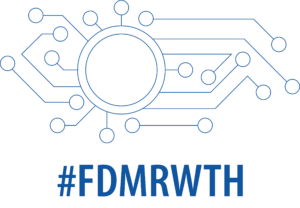Some time ago, in the blog post „Nutzen Sie schon ein elektronisches Laborbuch?” (engl.: Do you already use an electronic lab notebook?) we reported on electronic lab notebooks and introduced you to the topic. Among other things, that post linked to an overview of the products available at the time. What has happened since then? Is there any news around ELNs for researchers and where can they get them? All of this will be covered in this blog post. You can also expect a listing of our previous posts on ELNs.
Review and current status
Electronic lab notebooks are becoming increasingly relevant for researchers in the digital age. The topic came up as early as four years ago and a number of workshops have been held since then. These have been addressed on our blogs with the following posts:
- Die eigene Forschung den Möglichkeiten und Anforderungen der Digitalisierung entsprechend gestalten? Dieser Workshop hilft (Shaping your own research to meet the opportunities and requirements of digitization? This workshop helps)
- Workshop zur Nutzung elektronischer Laborbücher (Workshop on the use of electronic lab notebooks)
- Großes Interesse und reger Andrang: Ablauf und Resultate des ELN-Workshops (Great interest and lively attendance: Course and results of the ELN workshop)
- Nutzen Sie schon ein elektronisches Laborbuch? (Do you already use an electronic lab notebook?)
- Jetzt noch schnell anmelden: 3. NRW-Workshop zu Elektronischen Laborbüchern (Register now: 3rd NRW Workshop on electronic lab notebooks)
- Offenes FDM-Netzwerktreffen am 10. November 2021 (Open meeting of the RDM network on November 10, 2021)
Requests for electronic lab books come from a wide range of disciplines and the offerings also vary widely. Thus, a distinction can be made between open-source and commercial as well as between generic and specific products. Generic products are suitable for all disciplines, while subject-specific ELNs are tailored to the specific discipline. For example, they offer specific preconfigured templates. Commercial products mostly use proprietary file formats to store data. The source code is almost always closed-source and can therefore only be modified or extended by the provider. The license to use the products is subject to a fee. Open source products, on the other hand, can be used free of charge. The source code is openly accessible and may be further developed by an active developer community. The data formats used are usually open standard formats.
ELNs are already in use in NRW. The University Clinic of RWTH Aachen (UKA) and the University and University Clinic of Cologne use the commercial product eLabJournal. The Bonn-Rhein-Sieg University of Applied Sciences also uses a commercial ELN called Rspace. The University of Duisburg-Essen and the University of Düsseldorf have chosen the open source product eLabFTW.
Advantages of ELNs
An electronic lab notebook is a software tool that replicates a paper lab notebook. Protocols, observations, notes, and other data can be entered into an ELN using a computer or mobile device. ELNs offer several advantages over traditional paper notebooks: they facilitate good data management practices and provide data security and collaboration. Some ELNs can also manage inventories of samples, reagents, and other materials, and also keep track of equipment and maintenance schedules. They also support FAIR principles, which are recognized by the research community. Data and documentation can be easily shared with other staff, eliminating problems with poor handwriting or damaged paper notebooks. Another benefit is that ELNs prevent data from being lost when researchers move on. In addition, ELNs can be integrated with various applications, facilitating publication and the research process.
The perfect entry into practice
The federal state initiative for research data management fdm.nrw is already hosting the 6th meeting of the NRW AG on the topic of electronic lab books on January 31, 2022 from 10am to 2pm. The virtual workshop on electronic lab notebooks is aimed at all those interested in the topic and will address the current developments of the sites as well as networking among each other. All information about the event, agenda and registration can be found on the website of fdm.nrw.
Further information
If you have any questions about electronic lab notebooks or research data management in general, just contact the ServiceDesk. The RDM team looks forward to hearing from you.
For more information on FDM, also visit the RWTH web pages.
______
Responsible for the content of this article is Arlinda Ujkani.






Leave a Reply
You must be logged in to post a comment.